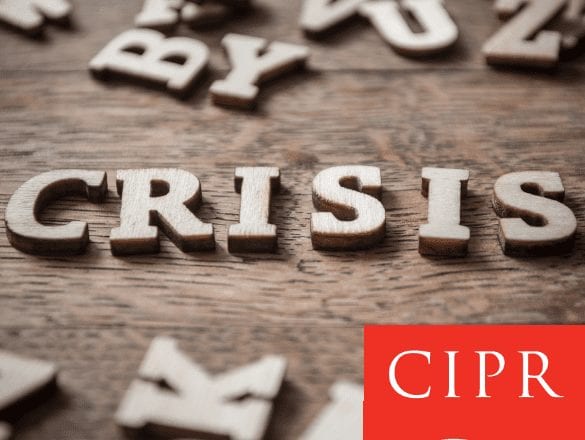Developing an effective crisis communications strategy
With today’s 24-hour news cycle, it’s now even more important to be on the ball when responding to a crisis. It’s therefore important that you have an effective crisis communications strategy.
With this in mind, I headed to Newcastle for a CIPR training session last week.
The workshop saw comms professionals from across the North East tackle a hypothetical crisis. Using listening skills, concise writing and a whole lot of empathy, we can make a huge difference.
Here are the five key points I took away from the session when thinking about developing an effective crisis communications strategy:
1. You already know what your crisis could be, so why not prepare the response?
While ‘crisis’ suggests ‘unexpected’, good comms pros will be able to predict what their crises may be.
If you work in the food industry, your greatest fear could be a customer suffering an allergic reaction to one of your products.
If you work for an international airline, the worst-case scenario is obviously a fatal incident involving passengers and aircrew.
A crisis will never develop in the way you thought, so you can never completely prepare. Yet, you can consider the risks, your immediate responses and your tone of voice.
Having a strategy for how you respond will enable you to get the wheels in motion when the time comes.
Practice makes perfect – so by running through a variety of scenarios, it will help should you face a real-life crisis.
2. Don’t hide something that you know to be true
While most of us know that denial is a sure way to double (or triple!) the size of a crisis, too many organisations still instinctively want to try and hide something for as long as possible.
This should never be accepted as the route out of a crisis.
As communication professionals, we need to know everything from the outset – warts and all. We can only advise and protect an organisation if we know the true extent and scale of the issue.
Be honest from the start as lies and deceit will only come back to bite you.
3. Only comment on the facts
Social media is a hive of gossip and misinformation at the best of times, but when a crisis breaks, the rumour mill goes into overdrive.
Fires can become explosions, illnesses can become pandemics and arguments can become full-blown wars.
Remember, if it’s your crisis, people will be looking at you for the true facts of the situation. Take ownership and take control. If you don’t know if something is true, then don’t mention it.
4. Make sure your statements and actions are consistent
You’ve got your statement written. It’s as good as it can be; proactive and reassuring. Make sure it’s on your website and social media channels, all your messaging is consistent and your senior team is well briefed.
Don’t run the risk of your CEO going off-piste by playing things down or diminishing the issue altogether in an interview or on social media.
It’s vital that all messages are consistent and reflect what you are actually doing. Actions speak louder than words!
5. If apologising is the right thing to do, then do it
Many companies and organisations are wary of issuing an apology. But sometimes, saying sorry is the only thing to do.
If the crisis is a result of a genuine mistake, make sure that your response includes an apology.
Regret, reassurance and response to a crisis can protect your organisation from further animosity. We all make mistakes so let’s be brave and hold our hands up. It can win you respect and friends in the long-run.
Above all else, just make sure you communicate with your audiences on a regular basis.
In the era of instant responses, they expect it.
Thank you to CIPR North East and Newcastle University Lecturer in Public Relations, Ramona Slusarczyk, for hosting the event. If you are responsible for managing public communications within your organisation and would like to discuss your crisis communications strategy in further detail, we would love to hear from you.
